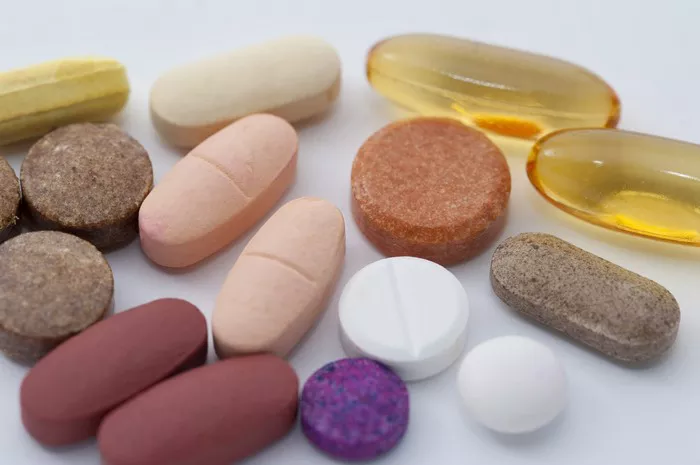Perimenopause, often referred to as the transitional phase leading up to menopause, can bring about a myriad of physical and emotional challenges for women. From hormonal fluctuations to bothersome symptoms such as hot flashes, mood swings, and sleep disturbances, finding effective relief becomes paramount. While lifestyle modifications play a crucial role, supplements can offer additional support during this transformative period. In this article, we will explore eight perimenopause relief supplements backed by scientific evidence.
Black Cohosh (Cimicifuga racemosa)
One of the most researched herbal supplements for perimenopausal symptoms, black cohosh has gained popularity for its potential to alleviate hot flashes and mood swings. Several studies suggest that black cohosh may influence serotonin receptors, helping to regulate mood and reduce the frequency and intensity of hot flashes. However, it’s essential to consult with a healthcare professional before incorporating black cohosh into your routine, as individual responses may vary.
Vitamin D
Vitamin D, often known as the sunshine vitamin, plays a crucial role in bone health and overall well-being. During perimenopause, hormonal changes can impact bone density, making adequate vitamin D intake even more critical. Research indicates that vitamin D may help mitigate symptoms such as joint pain and muscle aches. Sun exposure and dietary sources are essential, but supplements may be necessary to achieve optimal levels. Consultation with a healthcare provider can help determine the appropriate dosage for individual needs.
Omega-3 Fatty Acids
Known for their anti-inflammatory properties, omega-3 fatty acids, particularly EPA and DHA found in fish oil, may offer relief from perimenopausal symptoms. Studies suggest that omega-3 supplementation may help reduce the severity of hot flashes and improve mood stability. Additionally, omega-3s contribute to cardiovascular health, addressing potential concerns during this life stage. Including fatty fish in the diet or opting for high-quality supplements can be beneficial, with dosages guided by a healthcare professional.
Maca Root (Lepidium meyenii)
Maca root, a plant native to Peru, has gained attention for its potential in managing perimenopausal symptoms. Research suggests that maca may help alleviate hot flashes and improve sexual function. Its adaptogenic properties are believed to support hormonal balance, providing relief from mood swings and fatigue. While generally well-tolerated, it’s essential to start with a low dose and monitor individual responses. Consulting with a healthcare practitioner can ensure safe and effective use.
Calcium
Bone health becomes a primary concern during perimenopause, as declining estrogen levels can lead to bone density loss. Adequate calcium intake is crucial to maintain bone strength and prevent osteoporosis. While dietary sources like dairy products and leafy greens are important, supplements may be recommended, especially for those with dietary restrictions or absorption issues. Combining calcium with vitamin D enhances its absorption, promoting overall bone health and reducing the risk of fractures.
Magnesium
Magnesium, an essential mineral involved in numerous physiological processes, may play a role in alleviating perimenopausal symptoms. Research suggests that magnesium supplementation may help reduce the frequency and severity of hot flashes and improve sleep quality. Magnesium also supports mood regulation and muscle function. It’s important to note that magnesium levels should be monitored, as excessive intake can lead to adverse effects. Consulting with a healthcare professional can help determine the appropriate dosage based on individual needs.
See Also:Best Diet Plan for Perimenopause Hormonal Harmony
Ginseng (Panax ginseng)
Ginseng, a traditional herb in Chinese medicine, is known for its adaptogenic properties, which may help the body cope with stress and hormonal changes during perimenopause. Some studies suggest that ginseng may reduce the severity of hot flashes and improve overall well-being. However, individual responses to ginseng can vary, and it’s crucial to consult with a healthcare provider, especially for those with pre-existing health conditions or medications.
Evening Primrose Oil (Oenothera biennis)
Evening primrose oil, rich in gamma-linolenic acid (GLA), has been studied for its potential in managing perimenopausal symptoms, particularly breast pain and tenderness. GLA is an omega-6 fatty acid with anti-inflammatory properties, and supplementation may help reduce discomfort associated with hormonal fluctuations. As with any supplement, individual responses vary, and consultation with a healthcare professional is advised to determine appropriate dosages and assess potential interactions.
Conclusion
As women navigate the challenges of perimenopause, a holistic approach to health, including dietary and lifestyle modifications, is essential. The supplements discussed in this article offer evidence-based support for managing various perimenopausal symptoms. However, it’s crucial to approach supplementation with caution and under the guidance of a healthcare professional. Individual responses vary, and personalized recommendations can ensure safety and effectiveness. By combining these supplements with a healthy lifestyle, women can empower themselves to embrace this transformative phase with grace and resilience.
Related Topics:
How to Lose 20 Pounds in Perimenopause?
Is There OTC Medicine for Perimenopause?
What Are the Best Vitamins to Take for Perimenopause?


